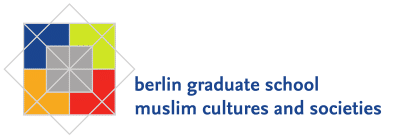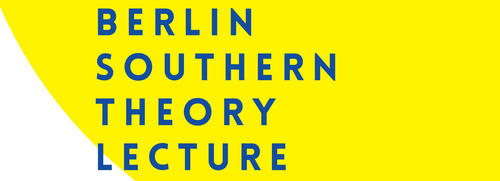Symposium: Men in (E)Motion: Gendering Affect in Times of Distress
News vom 03.05.2012
Final Conference of the DFG-funded research project "Masculinities and AIDS in Cape Town, South Africa"
Men in (E)Motion: Gendering Affect in Times of Distress
May 11 – 12 2012, Freie Universität Berlin
Venue: Seminaris Conference Center, Takustr. 39, 14195 Berlin-Dahlem
Organized by:
Hansjörg Dilger
Birgit Röttger-Rössler
Hanspeter Reihling
Institute of Social and Cultural Anthropology
Freie Universität Berlin
PROGRAM (can also be downloaded as pdf-file HERE)
Friday 11.05.2012
10:45 – 11:15: Registration
11:15 – 11:30: Welcome by Hansjörg Dilger & Birgit Röttger-Rössler
11:30 – 12:30: Keynote – Steven Robertson (Leeds Metropolitan University, Centre for Men’s Health): "Relating Well? Men, Emotions and Health"
12:30 – 14:00: Lunch
14:00 – 14:45: Birgit Röttger-Rössler (Languages of Emotion Cluster and Institute of Social and Cultural Anthropology, Freie Universität Berlin): “The Emotional Grammar of Honor: Kurdish Male Migrants in Distress”
14:45 – 15:30: Maria Tapias (Grinnell College): “Ambivalent Ambitions, Masculinities and Dis(ease) in the Context of Migration”
15:30 – 15:45: Break
15:45 – 16:30: Robert Morrell (Project for the Enhancement of Research Capacity, University of Cape Town): "Parental love and Masculinity in a survey of South African Men"
16:30 – 17:15: Janis Jenkins (Institute for Advanced Studies, Princeton and Department of Anthropology, UCSD): “Angry Boy: Rage among Males in the Southwestern United States"
Saturday 12.05.2012
09:15 – 10:00: Emily Wentzell (University of Iowa, Department of Anthropology): “Viagra as treatment for the pain of failed masculinity in Mexico”
10:00 – 10:45: Papa Sow (Universität Bonn, Center for Development Research): “Is emotion still 'Black' and reason still 'Hellenic'? West African immigrant men and the «softness» Syndrome in Europe"
10:45 – 11:00: Break
11:00 – 11:45: Andrew Tucker (Department of Geography and Centre for Gender Studies, University of Cambridge): "Developing a community-based HIV prevention programme for Men who have Sex with Men (MSM) in Cape Town: An exploration of depressed mood"
11:45 – 12:30: Dean Peacock (Sonke Gender Justice, Cape Town and Program in Global Health, University of California Los Angeles): Title to be announced.
12:30 – 14:00: Lunch
14:00 – 14:45: Thomas Stodulka (Languages of Emotion Cluster, Freie Universität Berlin): “'(Indonesian) Shame on you!' – On the political manipulation a 'modern' emotional regime”
14:45 – 15:30: Phillipe Bourgois (Department of Anthropology and Department of Family and Community Medicine, University of Pennsylvania): “Cultivating Rage in the US Inner City”
15: 30 – 15:45: Break
15: 45 – 17:00: Final Discussion
Conference abstract:
The symposium “Men in (E)Motion” invites scholars from different disciplines to explore men’s changing social trajectories in an interconnected world by linking shifts within material and imagined gender regimes to questions pertaining to health, sickness, affect, and emotions. For a long time gender regimes have marked not only differentiations between men and women, but also among men, thus leading to the inclusion of some and the marginalization of others in hegemonically constructed relations of masculinity and femininity.
While the image of the ‘reasonable man’ has largely been deconstructed by various disciplines, few empirical studies trace the connections between men’s gendered subjectivity, the experience of emotions, and health cross-culturally. Furthermore, the effects of these connections on relations between men and women, as well as among different groups of men, in times of distress have seldom been explored.
With this symposium we encourage explorations of how different groups of men experience and act upon situations of physical and mental distress through a wide range of emotions (i.e. anger, fear, pride or shame) as well as how these experiences and acts may become part of performing and transforming gender regimes. Contributions comprise but are not limited to the following questions: How does men’s experience of affect accelerate or inhibit the change of gender regimes in times of crisis caused by illness, violence, and poverty? What established and new cultural meanings do men assign to emotions in the wake of profound technological transformations in biomedicine and public health on different continents? How do social connections and disconnections emerge through such meanings in relation to their families, friends, and (sexual) partners? In how far are normative rules for the expression of emotions part of old and new forms of governmentality with what effects for the well-being of both men and women?
Building on existing scholarship in medical anthropology, the history of medicine, cultural psychiatry, medical sociology, cultural geography, and public health this interdisciplinary symposium will focus on the multiple ways in which bodily, cultural, political, and economic processes relate to individual as well as collective forms of reflexivity and selftransformation.
It will unpack social differentiations (i.e. gender, ethnicity, class, religion) in order to follow men’s embodied experience of health related emotions to particular historical moments and geographical places. Furthermore, the symposium’s aim is to stimulate discussion between more established and younger scholars from different disciplines to ground ways forward in the translation of languages of emotion, gender, and health.
Registration:
We have limited seating capacity. Seats will be allocated on a first-come/first-serve basis by pre-registration until May 3rd. The registration fee is €18 per person, includes light refreshments, and can be covered on site. Unfortunately we cannot offer any travel grants. You are responsible for your own lodging and transportation.
To register contact Carla Dietzel:
E-mail: carla.dietzel@fu-berlin.de


